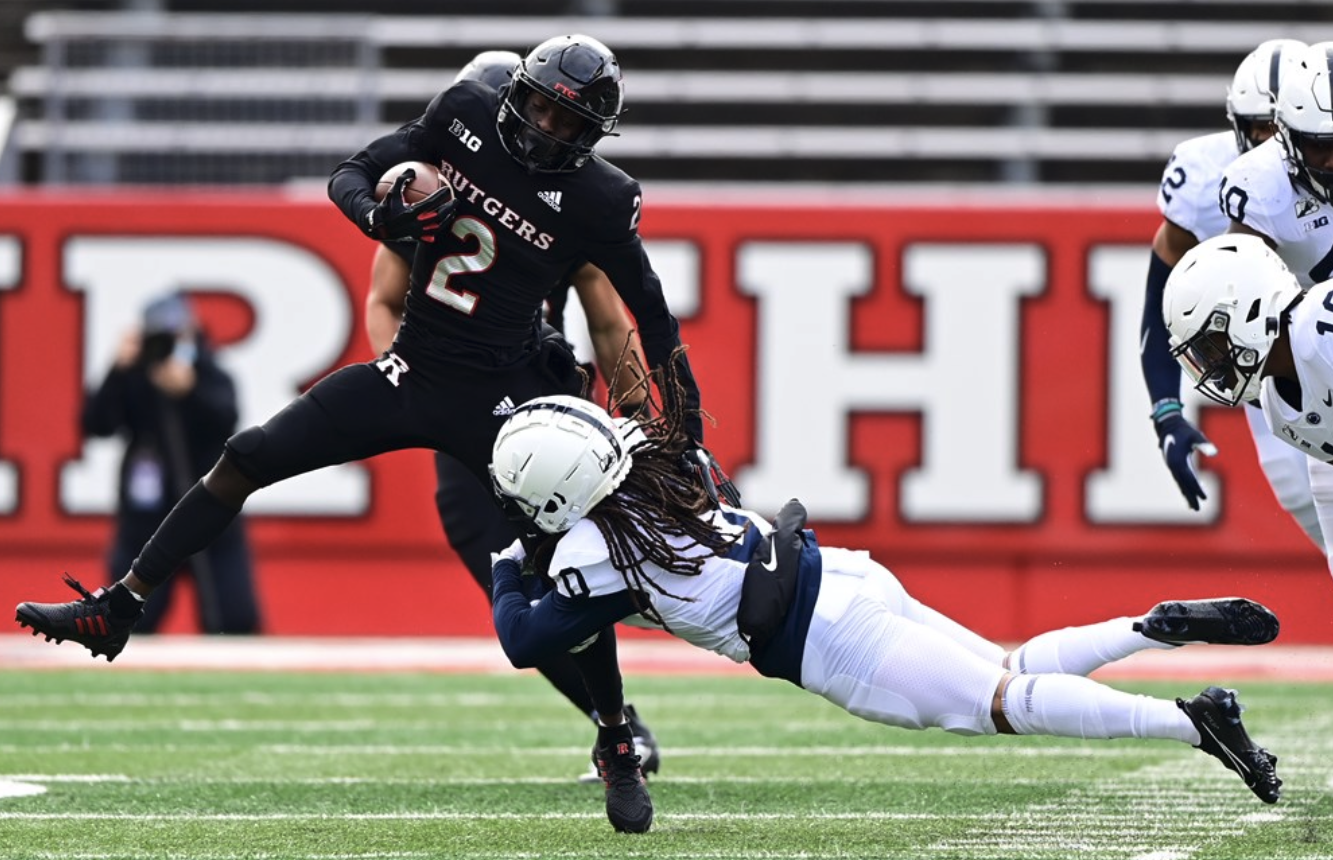New Jersey Poll Finds Little Support to End Ban on In-State College Sports Betting
Posted on: July 8, 2021, 11:50h.
Last updated on: July 9, 2021, 10:46h.
A proposed state constitutional amendment to allow sports betting on games involving in-state college teams easily cleared last month through the New Jersey Legislature. However, a recent survey shows the referendum faces a tougher test in the voting booth.

On Thursday, Fairleigh Dickinson University released the results of a recent poll that found just 25 percent said they supported betting on in-state college teams. However, what may be more worrisome for supporters is that 49 percent felt it should still be prohibited.
New Jersey passed its sports betting law and enacted it after the US Supreme Court ruled in favor of the state in the 2018 PASPA case. The law allowed for wagering on professional and major college sports. However, it carved out an exception for games involving in-state teams, meaning bettors could not wager on schools like Rutgers, FDU, Seton Hall, or Princeton. Or their opponents, for that matter.
Further, the law also banned bets on any college sporting event taking place in the state, even if it involved two out-of-state teams. So, an Army-Navy football game at MetLife Stadium would be off the board.
New Jersey’s not the only state to exclude in-state college teams. Other states like Illinois, New York, and Virginia have implemented similar bans. College officials have pursued bans in states, saying they fear allowing the bets would lead to match-fixing and corruption. Nevada once had a ban as well, although that was repealed 20 years ago.
Time Short for Advocates
Opponents have countered that argument by noting that most corruption and match-fixing is tied to illegal betting. They argue that keeping those games off licensed in-state sportsbooks only pushes more action to illegal bookies or offshore apps.
Voters will go to the polls in New Jersey on Nov. 2. That gives proponents less than four months to win the hearts and minds of voters.
The survey was conducted between June 9-16. Of the 803 registered voters responding, 608 participated via an online survey, while the rest were called.
That means the survey took place after the state Senate’s 36-1 vote on Senate Concurrent Resolution 133 on June 3. But after, it cleared the Assembly by a 70-4 margin on June 24.
In a release detailing the poll results, Dan Cassino, an FDU professor of government and politics who serves as the poll’s executive director, said that the issue may have some status quo bias attached to it. When people are asked about an issue they do not know well, they tend to oppose a change.
“As it is, opposition is some combination of not wanting to change things without understanding the options, and just plain opposition to more expansion of gambling in the state,” he said. “Supporters have to explain what they’re proposing, and hope that voters are going to buy-in.”
Who Supports Betting on New Jersey Colleges
The FDU poll also broke down the survey results by age, education, gender, and political party. Of those subgroups, only one – adults age 18-34 – supported the measure, and that was only by a 36-35 margin. Senior citizens, though, only backed it at 11 percent.
Besides the younger adults, support for in-state college sports betting is strongest among Independent and Republican voters (both support at 32 percent, though 51 percent of GOP voters said they opposed). Democrats opposed it by an 18-49 margin.
The poll found 36 percent of men support it, compared to just 14 percent of women. Regarding education, those who didn’t go to college supported the measure most at 30 percent. The higher the educational attainment, the less support for ending the ban the poll found.
Those numbers do not bode well for the measure, Cassino said.
This change might have had a better chance in a higher turnout year,” said Cassino. “But among the voters who tend to turn out the most, there’s just no appetite for expanding gaming yet again.”
Even with the in-state college sports exclusion, New Jersey has firmly positioned itself as America’s top sports betting market. However, that spot will likely become New York’s once its mobile apps come online, likely in 2022.
Related News Articles
Minnesota Sports Betting Bill Scores First Victory
Most Popular
Las Vegas Overstated F1 Race’s Vegas Impact — Report
Vegas Strip Clubs Wrestle in Court Over Animal Names
Most Commented
-
End of the Line for Las Vegas Monorail
— April 5, 2024 — 90 Comments -
Mega Millions Reportedly Mulling Substantial Ticket Price Increase
— April 16, 2024 — 6 Comments -
Long Island Casino Opponents Love New York Licensing Delays
— March 27, 2024 — 5 Comments -
Nearly Abandoned Mall Outside Vegas Soon to Have Only One Tenant
— March 12, 2024 — 5 Comments
















No comments yet